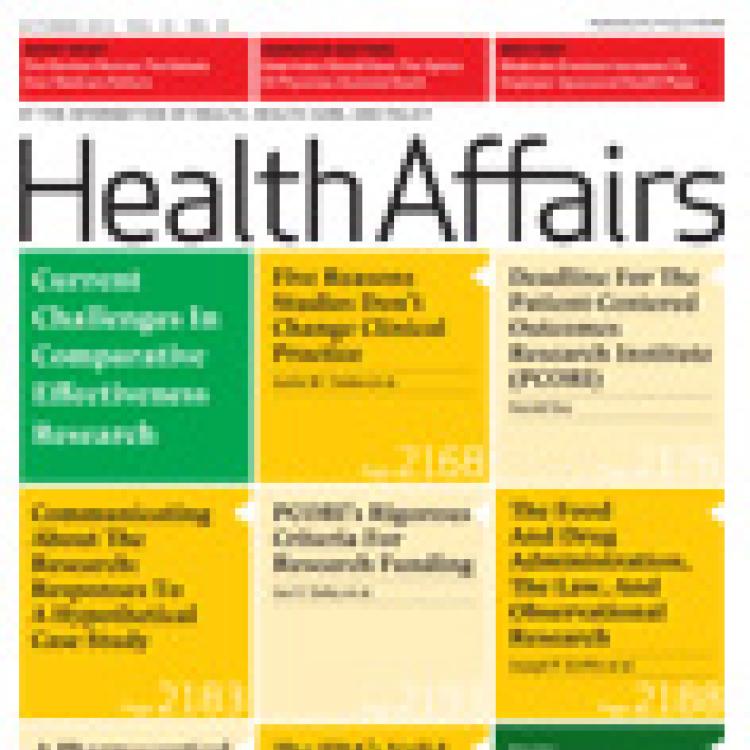Setting Priorities for Comparative Effectiveness Research: From Assessing Public Health Benefits to Being Open With the Public
Abstract (from Health Affairs): Medicine’s current evidence base is insufficient for many of the decisions made daily by clinicians, patients, purchasers, and policy makers. The Patient-Centered Outcomes Research Institute (PCORI) represents an effort by the US government to address this shortcoming by funding comparative effectiveness research (CER). Prioritizing that research will be a critical first step. To better understand components of an optimal process, NPC reviewed the literature and conducted interviews regarding the prioritization efforts of leading public and private health organizations in the United States and abroad. From this review, NPC proposes a framework for prioritization, poses and answers key questions, and makes recommendations regarding application of that framework. NPC also recommends that during the priority-setting process, there should be transparent conversations among those who make decisions about the priorities and the public.
View the interview with NPC Chief Science Officer Dr. Robert Dubois and read the press release.
About the project:
NPC undertook this research to understand the components of an optimal approach to prioritizing CER. It is especially timely because PCORI is working on its priorities for the CER that it will fund; these priorities will set the tone for all of the institute’s future activities.The research also highlights the difficult questions PCORI will face as the public dialogue on its national research priorities and research agenda begins.
Why prioritization is important:
Not all topics can be studied; there are budget and time constraints that limit what activities can be done. Without setting criteria or defining priorities, one risks including all areas and prioritizing none, an outcome that is not helpful to patients or providers who are looking for answers.
Key recommendations that should be used to make research decision-making processes more effective include:
Defining priorities to identify what has greater and lesser importance;
Ensuring that all stakeholders are engaged in all aspects of the prioritization process, including identifying topics and prioritizing among them;
Using a systematic approach when considering all evidence as it relates to prioritizing topics;
Maintaining an open and transparent consensus process which can handle inevitable disagreement;
Communicating the process and the results of the process;
Allowing for the incorporation of new evidence that takes into account continuing advances in medical care or technology; and
Evaluating the results of the process by asking both those involved in the process and the general public.
Image
